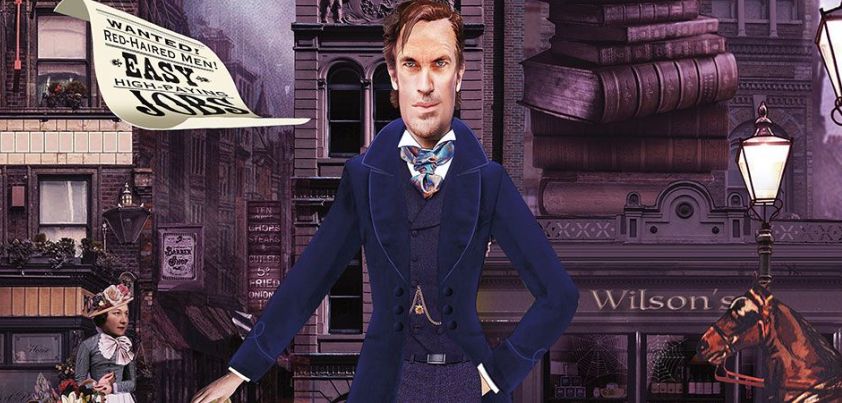 This story by Alice Adams consists of several “snapshots” of the narrator’s encounters with fellow passengers on Greyhound buses. Recently divorced and facing potential homelessness, the woman’s self-esteem is at an all-time low. Taken in by an overbearing friend, her life has deteriorated into a daily grind. Faced with an inter-city bus commute morning and evening, the situations she encounters and people she meets awaken her to a whole new world. For perhaps the first time in her life, she begins to act independently and step out of her comfort zone. Themes: isolation, insecurity, friendship, dependency, anxiety/fear, personal growth. More…
This story by Alice Adams consists of several “snapshots” of the narrator’s encounters with fellow passengers on Greyhound buses. Recently divorced and facing potential homelessness, the woman’s self-esteem is at an all-time low. Taken in by an overbearing friend, her life has deteriorated into a daily grind. Faced with an inter-city bus commute morning and evening, the situations she encounters and people she meets awaken her to a whole new world. For perhaps the first time in her life, she begins to act independently and step out of her comfort zone. Themes: isolation, insecurity, friendship, dependency, anxiety/fear, personal growth. More…
All posts by shortsonline
A Jury of Her Peers
 The three dominant themes of this story by Susan Glaspell are feminism (gender roles), deception and justice. Men investigating a farmer’s murder bring two of their wives to the scene of the crime (his farmhouse) to collect clothing, etc. for the suspect (the farmer’s wife) while in jail. Ironically, although the men mock the women’s ability to contribute to the investigation, the wives find evidence that would convict the suspect. They then face a moral dilemma. A jury of men would not understand the suspect’s suffering. Would justice be served by proving her guilt? More…
The three dominant themes of this story by Susan Glaspell are feminism (gender roles), deception and justice. Men investigating a farmer’s murder bring two of their wives to the scene of the crime (his farmhouse) to collect clothing, etc. for the suspect (the farmer’s wife) while in jail. Ironically, although the men mock the women’s ability to contribute to the investigation, the wives find evidence that would convict the suspect. They then face a moral dilemma. A jury of men would not understand the suspect’s suffering. Would justice be served by proving her guilt? More…
The Red-Headed League
 A common theme in most detective stories is superior observation skills and deductive reasoning. A defining feature of Arthur Conan Doyle’s Red-Headed League is the way the facts presented by the gullible Wilson appear so bizarre to Watson as to defy interpretation. This prompts Holmes’s to quip: Omne ignotum pro magnifico [we exaggerate the importance of the unknown]. Once he dismisses the Red-Headed League as a distraction, identifying the crime in progress becomes a straightforward matter for the great detective. Other themes include deception (appearance vs. reality), gullibility, greed (of both the criminals and Wilson), crime and justice. More…
A common theme in most detective stories is superior observation skills and deductive reasoning. A defining feature of Arthur Conan Doyle’s Red-Headed League is the way the facts presented by the gullible Wilson appear so bizarre to Watson as to defy interpretation. This prompts Holmes’s to quip: Omne ignotum pro magnifico [we exaggerate the importance of the unknown]. Once he dismisses the Red-Headed League as a distraction, identifying the crime in progress becomes a straightforward matter for the great detective. Other themes include deception (appearance vs. reality), gullibility, greed (of both the criminals and Wilson), crime and justice. More…
Ghost of the Lagoon
 Set on the beautiful Pacific island of Bora Bora, this exciting adventure tale from Armstrong Sperry involves a boy (Mako), his dog and a monster from the sea. When Mako learns that Tupa, the “ghost of the lagoon”, was responsible for the death of his father, he swears revenge. It is almost as if Tupa were listening. The monster attacks Mako’s canoe the very next evening. Themes include superstition, vengeance, self-reliance, courage and possibly greed… rather than satisfaction and pride, the main thing on Mako’s mind afterwards seems to be a large reward that was on offer for Tupa’s death! More…
Set on the beautiful Pacific island of Bora Bora, this exciting adventure tale from Armstrong Sperry involves a boy (Mako), his dog and a monster from the sea. When Mako learns that Tupa, the “ghost of the lagoon”, was responsible for the death of his father, he swears revenge. It is almost as if Tupa were listening. The monster attacks Mako’s canoe the very next evening. Themes include superstition, vengeance, self-reliance, courage and possibly greed… rather than satisfaction and pride, the main thing on Mako’s mind afterwards seems to be a large reward that was on offer for Tupa’s death! More…
The King of Jazz
 The King of Jazz provides a satirical account of several aspects of the American music scene. Donald Barthelme loved jazz, and his main target here are fickle music critics and the way they try to out-do each other with flowery and often meaningless language when describing performances. He also makes fun of the ‘cutting contests’ once used by musicians to judge themselves against one another and, in so doing, satirizes the system of ‘chair challenges’ that were (are?) common in U.S. school bands. Finally, he sends up the notion that American musicians are the preeminent force in world jazz. More…
The King of Jazz provides a satirical account of several aspects of the American music scene. Donald Barthelme loved jazz, and his main target here are fickle music critics and the way they try to out-do each other with flowery and often meaningless language when describing performances. He also makes fun of the ‘cutting contests’ once used by musicians to judge themselves against one another and, in so doing, satirizes the system of ‘chair challenges’ that were (are?) common in U.S. school bands. Finally, he sends up the notion that American musicians are the preeminent force in world jazz. More…